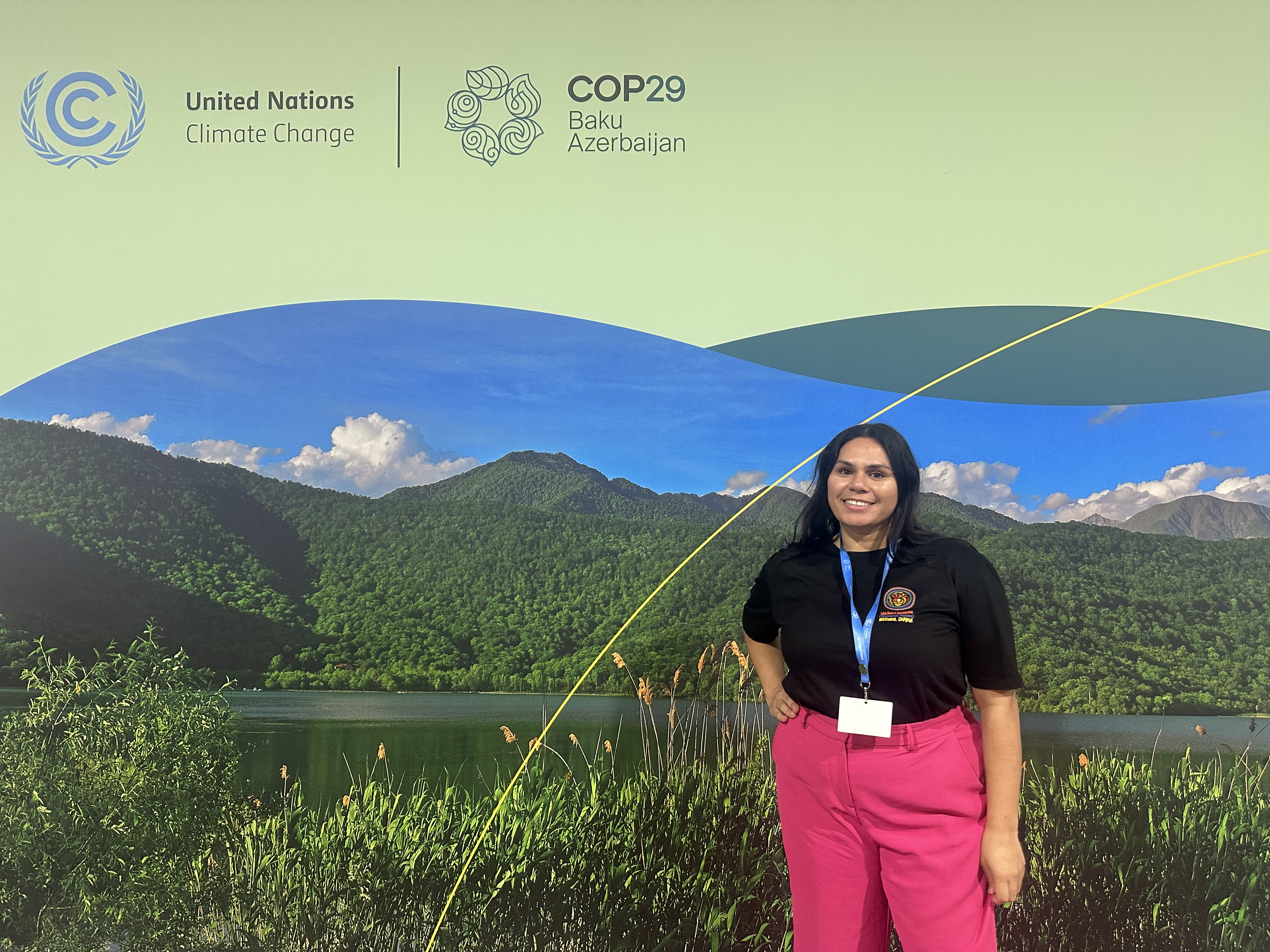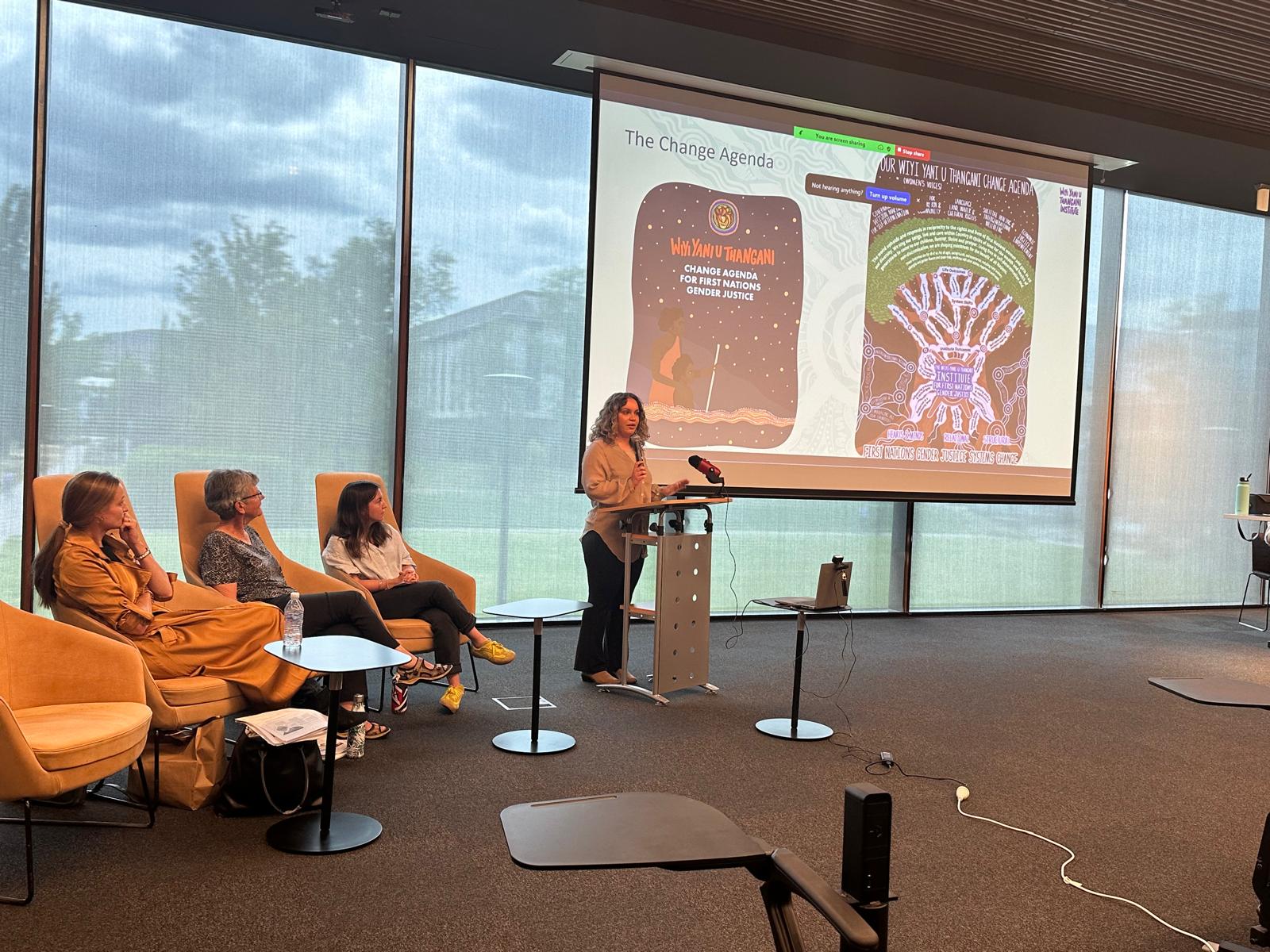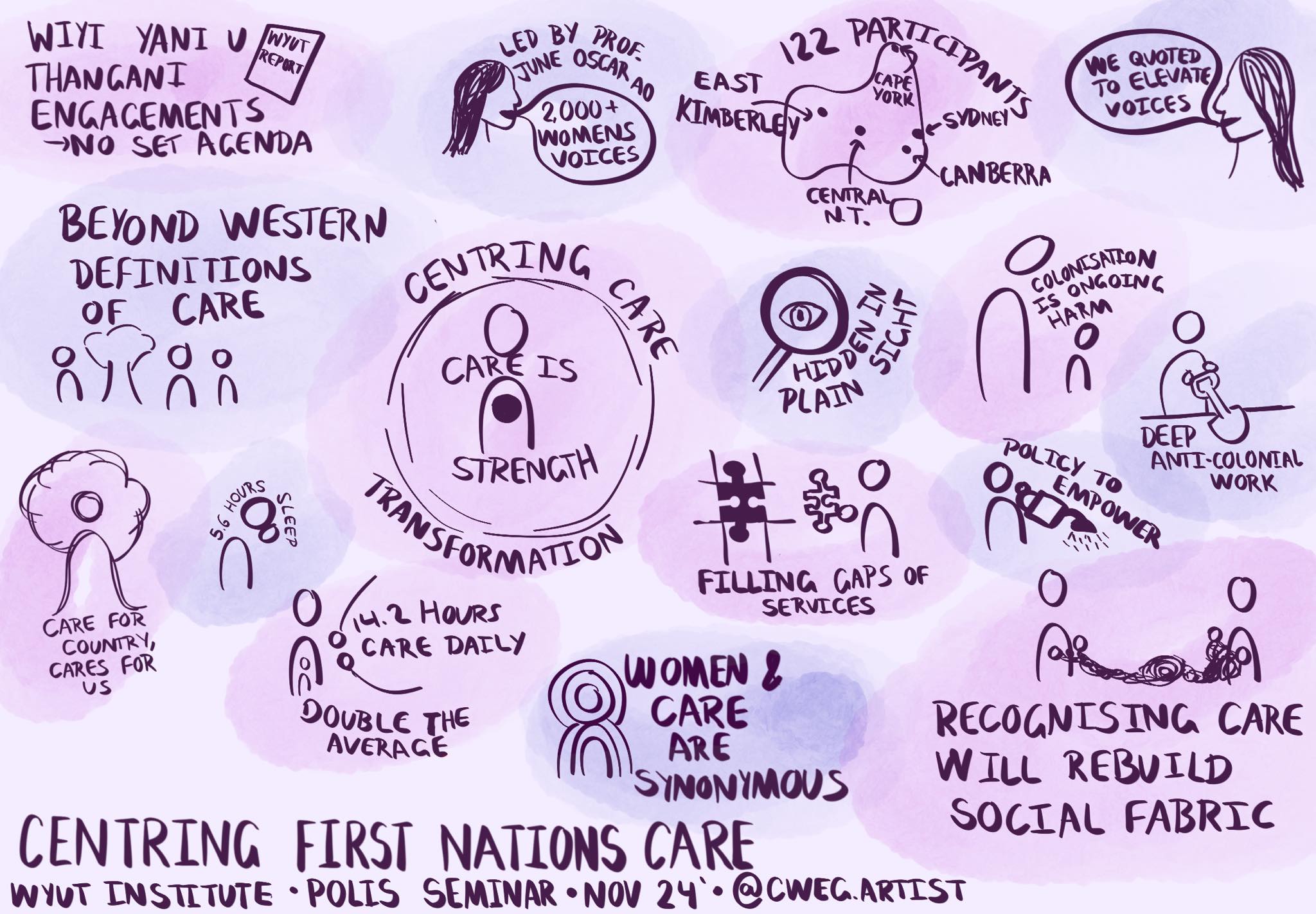
Dear Friends,
We hope you are all keeping well, and staying cool as we approach the warmer months across much of the continent.
The Wiyi Yani U Thangani team has had a busy few weeks this November.

This month, Terri Reid attended the United Nations Climate Conference (Coalition of Parties, COP29) in Baku, Azerbaijan. Terri attending as part of a First Nations delegation hosted by GetUp! to bring attention to the need for a First Nations gender justice lens in negotiations.
Her reflections are below.
I’ve been thinking a lot about what it means to be brave in the context of systems change. Bravery, I’ve come to realise, is not just an individual trait—it’s something that systems, structures, and institutions must embody, so desperately now more than ever. To truly address the challenges of climate change, the systems that govern us need to challenge their own foundations, dismantle exclusionary practices, and embrace new ways of working. They need to step aside from the status quo and centre those who live the impacts of climate change every day—Indigenous women and girls.
This month, I had the privilege to attend the United Nations Climate Change Conference (COP29) in Baku, Azerbaijan. Attending COP29, I witnessed both the barriers and the potential of bravery within these systems. I heard stories from the Pacific and the Amazon, that laid bare the realities of rising seas, food insecurity, and the disproportionate burdens placed on women. These stories echoed those of our own communities and reminded me that while First Nations women are at the forefront of climate resilience, we are too often absent from the decision-making spaces that shape our futures.
One of the most powerful sessions of COP29 was meeting with women from the Joint Coordination of Indigenous Organizations of the Brazilian Amazon (COIAB). Their strength, courage, and clarity in articulating their vision for their communities inspired me deeply. In our conversations, we shared not just the challenges we face, but the shared understanding that structural reforms are essential. Together, we called for meaningful changes, including Indigenous and gender Co-Chair positions within global climate governance frameworks. These reforms are not just symbolic—they are critical to ensuring that decision-making reflects the lived realities of those most impacted by climate change.
This need for Indigenous representation is not new. It aligns with the work of the Facilitative Working Group (FWG) under the Local Communities and Indigenous Peoples Platform (LCIPP), which demonstrates the transformative potential of co-chaired leadership by Indigenous representatives. But there is still a long way to go. Indigenous women like those in COIAB, and like us, bring to these spaces more than just stories of resilience. We bring solutions rooted in deep relationality with the land, in intergenerational knowledge, and in the understanding that climate justice cannot exist without gender justice.
As I reflect on this trip, I feel a profound urgency for First Nations women and girls to be heard in these global discussions. For too long, the impacts of climate change have disproportionately fallen on our shoulders. We are not just victims; we are custodians, leaders, and advocates. Our voices carry the knowledge of how to heal Country, how to restore balance, and how to protect the systems that sustain us all.
But the barriers are real. Systemic exclusion, under-representation and the lack of culturally safe spaces in these global forums mean that too many of our women and girls are unable to contribute to the solutions we so desperately need. This has to change. Governments, organisations, and system actors must commit to not just inviting First Nations women to these spaces, but ensuring we have the power to shape the agenda.
At COP29, I saw glimpses of what is possible when Indigenous women take their rightful place at the table. The Lima Work Programme on Gender and its Gender Action Plan offer a foundation, recognising that women, especially Indigenous women, are central to climate solutions. But it is grassroots action and advocacy that will truly drive change. From Pacific women leading adaptation efforts to Amazonian women defending their forests, the message is clear: Indigenous women and girls are already leading. It’s time for the world to listen and learn.
Now that I am home, my commitment feels stronger than ever. And much of this strength I draw from our Institute team. For First Nations women, girls and gender-diverse peoples reading this, know that your voices matter. Whether it’s in your communities or on the global stage, our lived experiences, our knowledges, and our resilience are the keys to driving the change we need. To governments and system actors, the call is simple: centre our voices, invest in our leadership, and reform the systems that exclude us. The fight for climate justice is the fight for gender justice.
Co-Leads Banok Rind and Jane Pedersen presented at an ANU POLIS seminar alongside Dr Janet Hunt (ANU), Dr Elise Klein (ANU) and Dr Zoe Staines (UQ) to explore the Caring About Care research on First Nations women’s care.

Key topics and discussions from the seminar have been visually captured by Project Coordinator and visual scribe, Chloe Wegener.

The Institute and research team are continuing to explore opportunities for further research and policy reform to centre First Nations women’s care. You can explore this vital research further via the links below.
June Oscar AO joined Julia Gillard —Australia’s only female Prime Minister—on A Podcast of One’s Own to discuss her gender justice journey and inspirations.
On A Podcast of One’s Own, Julia sits down with some of the most interesting people from around the world working to advance gender equality.
Listen on Spotify or Apple Podcasts.
When we practise lateral love our spirits grow, we are open and not threatened by challenging conversations. Instead, we embrace one another, forming connections, healing from division, and thriving in a society of care, trust and respect.
Have you considered what makes you strong and what the strength, resilience and experiences of others are?
Do you take action to step away when you feel frustrated?
How do you practise curiosity?